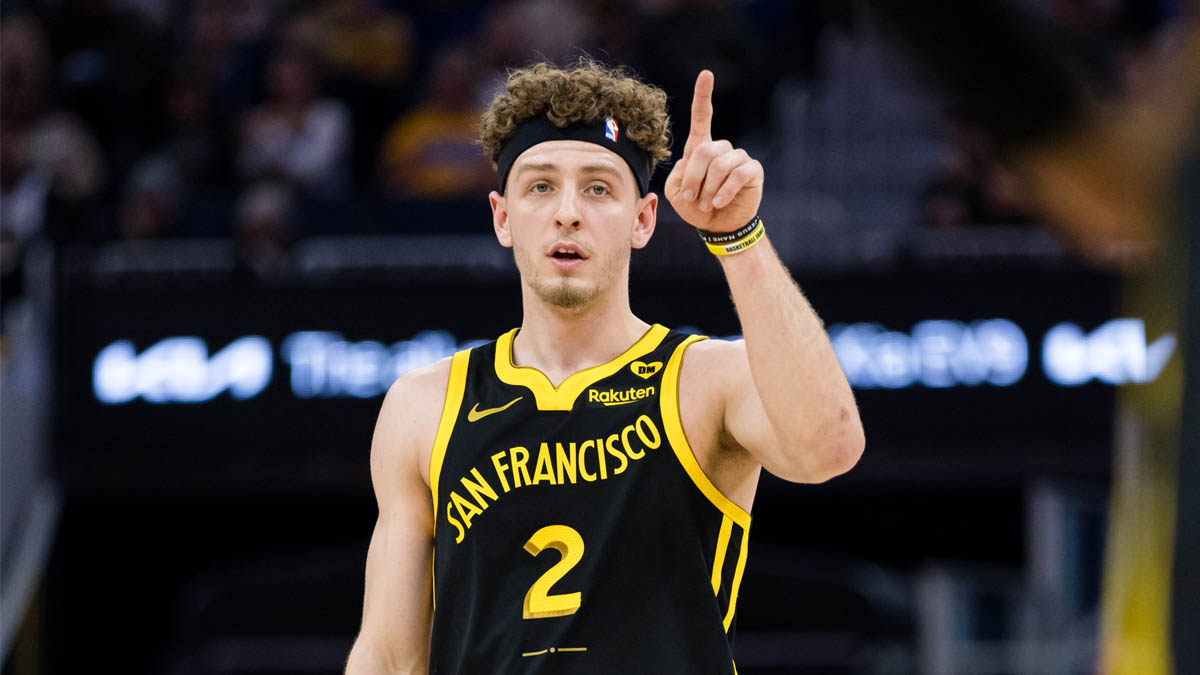The look on Steve Kerr’s face when recalling the longest day of his life conveyed it all.
Pure agony, still, 36 years later.
Now, after Episode Nine of the national fixation that was ESPN’s “The Last Dance” on Sunday night, we are reminded of what many have known for decades, that behind Kerr’s bright blue eyes lies a level of pain and perseverance that can only be generated in the wake of unspeakable personal tragedy.
Stay in the game with the latest updates on your beloved Bay Area and California sports teams! Sign up here for our All Access Daily newsletter.
Moreover, Episode Nine gave anyone with a soul a better understanding of Kerr. His engagement in social issues, particularly his crusade against gun violence, comes from the most honest of experiences. Nothing grips quite as tight as that which strikes the heart.
What could hit harder than waking up in his dorm room at 3 a.m. and getting a phone call informing him that his father had been killed?
“He just said, ‘Steve, I have terrible news,’” Kerr, recalling the phone call from a family friend, said on documentary.
His voice cracked. His chin dropped. His eyes moistened.
Golden State Warriors
“So ... yeah.”
The horrible events of Jan. 18, 1984 were etched on Kerr’s face, coming through the screen. Dr. Malcolm Kerr was assassinated, really, in Beirut by terrorists that didn’t care that he’d come to the Middle East as an educator. That he was attempting to do a good deed in a place he knew was exceedingly dangerous and particularly hostile to Americans.
Steve was an 18-year-old freshman at the University of Arizona. Most of his family was in Beirut, with his father.
“I was still, relatively, a kid, just beginning to grow up,” Kerr told NBC Sports Bay Area in 2018. “And it shaped the way I thought about the world and disillusioned me in many ways.
“And everything that’s happened since, I’ve always had sort of had a big-picture, global perspective in life.”
Any parent that has lost a child to violence knows and understands. Any child that has lost a parent to violence knows and understands. Anyone who has lost a loved one to violence can bear witness to the suffering that follows. It lingers. Indefinitely.
Michael Jordan knows what it’s like. When his father, James Jordan, was murdered in 1993, it naturally shook MJ. Still does, to this day. But he grew up in the south, where gun culture is embraced. Which may explain why his dad’s death did not stir within the son a passion to rage against such crimes. Michael is, in case you’re new to the planet, different.
Kerr, to the contrary, grew up in an upper-middle-class family in Southern California yet is predisposed to activism. Education, politics and sports -- in that order -- dominated kitchen-table talk. Dr. Kerr was a professor of Middle East politics at UCLA. Fluent in Arabic, he wrote books on the subject. The Kerr family, Malcolm, Ann and their four children, moved often. Steve was born in Beirut and also lived in Egypt for three years.
“I was really lucky to grow up in a family that had a pretty wide view of the world,” Kerr said in 2018.
As drawn as Steve always was to matters affecting lives beyond his own and his family, his passion for activism escalated in the wake of his father’s death. Steve’s sensitivity toward others coping with tragedy is sincere, as is his desire to seek a path toward peace.
Promoting understanding and seeking peace were primary components of his father’s mission. In the 36 years since Malcolm Kerr died, his son has been a voice for progressive causes and equality, and a leading voice in the quest for sensible gun laws.
[RELATED: 'The Last Dance' confirms Kerr's message to 2018-19 Warriors]
Steve’s efforts draw praise in some quarters and no small amount of ridicule from America’s political right. He doesn’t care.
Malcolm Kerr has missed his middle son’s adult life. He did not see Steve rise from third-tier college recruit to All-Pac-10 status, from a 15-year NBA career that included five championship rings to a six-year coaching career with three more rings.
Steve Kerr’s basketball voyage has been incredible. One of his biggest regrets is that he has not been able to share a moment of it with his father.
So, the son is committed to doing what he can. He honors his father’s memory with actions his father would endorse. And one look at his face when reliving the loss of his father is enough to know how much it means to him.


